Einleitung
Long gone are the days of analog boomboxes; say hello to portable, wireless speakers. The popularity of digital musical content demands a new and innovative way of listening to our music. Meet the Sonos Play:3 All-in-One Wireless Music Player with 3 Integrated Speakers.
Follow us on Twitter and Facebook for the latest teardown news.
Werkzeuge
-
-
Ladies and gentlemen, allow us to introduce the Sonos Play:3 all-in-one wireless* music player.
-
*Amazon puts it best: The Play:3 "easily connects to your wireless router with included Ethernet cable or wirelessly anywhere with addition of Sonos Bridge." So if you want to use it wirelessly, you'll need to shell out another $50 for the Sonos Bridge. Otherwise, Ethernet's the only way to connect to it.
-
What exactly does this all-in-one music player contain? We're glad you asked:
-
-
Three-driver speaker system—two mid-range woofers and a tweeter
-
A classy grey box that works both horizontally or vertically
-
-
-
The rear side of the Sonos Play:3 houses a minimal number of ports:
-
Ethernet port
-
AC 120/240 V power supply port
-
Standard ¼"-20 threaded mounting socket
-
-
-
A flick of our spudger allows us to remove the speaker grille with relative ease, although the gooey adhesive on the perimeter clips was reluctant to let go.
-
Our first peek inside reveals exactly what we expected—speakers!
-
-
-
What do we have here? If it isn't our good friend, the "Warranty void if opened" sticker.
-
Alas, cousin, we hardly knew ye.
-
Just as we thought, there is a hidden screw located underneath the "you shall not pass" sticker.
-
The fragile sticker comes off easily, but leaves its impression on the front bezel: a repeating pattern of the word "VOID." It seems Sonos doesn't want users servicing their own players
-
-
-
This is what opening Pandora's box must feel like. Let's hope that this action does not have severe and far-reaching consequences.
-
Inside the Sonos Play:3 is a playground of wires and circuit boards, arranged methodically for space efficiency.
-
Before we can free the front panel assembly, we must disconnect the speaker wires and pull out what appears to be a Wi-Fi antenna.
-
So if the Sonos requires a networking cable, what's this for? More on this in just a few steps…
-
-
-
How difficult is it to replace the two mid-range drivers and the one tweeter? Not very difficult. Each is held in by four Phillips screws, for a total of twelve to pull out the trifecta of music-emitters.
-
With these speakers out of the front panel, maybe we can drop something a little larger in there.
-
-
-
The mid-range drivers have pretty impressive permanent magnets, accounting for 37% of the device's total 5.7 lbs.
-
Want more specs on the speakers? So did we. Since Sonos is hush-hush about them, we decided to do some poking and prodding of our own. Here's what we came up with:
-
2 ¾" mid-range drivers (2" composite speaker cones)
-
4.8 Ω measured resistance
-
1" silk dome tweeter
-
3.7 Ω measured resistance (tweeter)
-
Why do we stress that these are measured resistances? While speaker ratings are given in ohms, the unit of resistance, they're actually values of impedance, which is dependent on the specific frequency being played. Home stereo speaker impedances are usually 8 Ω, but because a multimeter can only read resistance, our measurement will be lower.
-
-
-
Getting to the Play:3's motherboard was no Herculean task, even though it did require defeating the Hydra cables, as well as some Phillips screws.
-
No matter what obstacles are put in our way, we will go the distance to dismantle this device.
-
-
-
We found three antennas in the Sonos Play:3, all attached to a communications card on the motherboard and held in place with a soft glue.
-
Through a combination of the three antennas, the Play:3 communicates over SonosNet, a proprietary wireless mesh network that connects the player to a Sonos Bridge or another player (but not your home wireless network).
-
The length of the antenna traces are listed on the antenna board (10 and 23.2 mm). The antenna design seems to be that of an Inverted F-Antenna, common in small electronics and implemented to reduce antenna size and improve multiple input multiple output (MIMO) systems.
-
-
-
-
With the motherboard removed and stripped down, we finally get to see the control behind the music. The following prominent ICs power this device:
-
MPC8314VRADDA low-power PowerQUICC II pro 266 MHz processor
-
STMicroelectronics NAND 512W3A2SN6
-
Nanya NT5TU32M16DG-3C 512 Mb DDR2 RAM
-
STMicroelectronics STA339BW 2.1-channel high-efficiency digital audio system, capable of outputting 2 x 20 W into 8 Ω at 18 V (we assume these two chips make up the "three class-D digital amplifiers" listed on Sonos' website)
-
Maxim 78Q2123 10/100 fast ethernet MicroPHY
-
HanRun HY601680 10/100Base-T transformer module
-
On the back: Texas Instruments TPS54226 4.5 V to 18 V input, 2 A synchronous step-down SWIFT converter
-
-
-
Proceeding with caution, we carefully remove the "AC 120/240V, 50-60Hz, auto-switchable" power supply board.
-
Behold, the towering metropolis that is populated by an array of capacitors and inductors.
-
-
-
The short clearance inside this case almost got us down, until we pulled out the flexible shaft attachment from our 54 Bit Driver Kit.
-
With yet another rarely used tool in hand, we snake a Phillips #0 bit into the case's interior, pull out a few screws, and free the button board.
-
While the button board itself is easy to replace (with the correct tools), it's a bit of a bummer that you have to take most of the device apart to get to it.
-
-
-
At long last we've found the advertised bass radiator, a passive speaker cone secured in the very back of the case that forms an inexpensive alternative to a powered subwoofer.
-
Interested in knowing how a bass radiator works? Wonder no more. As the mid-range drivers move back and forth, they create air pressure inside the enclosure. A bass radiator uses that air pressure to create a "bassier" sound, without taking up excess room. It's similar in principle to a reflex port in an enclosure, without taking up a lot of space.
-
-
-
Sonos Play:3 Repairability Score: 8 out of 10 (10 is easiest to repair)
-
All major components are held in place with Phillips screws, many of them the same size.
-
The entire disassembly is pretty straightforward.
-
Modular design means that nearly every component can be replaced individually.
-
Glue and adhesive are not impossible to overcome, but definitely need to be reapplied to dampen vibrations.
-
A "warranty void" sticker stands between you and any repairs.
-
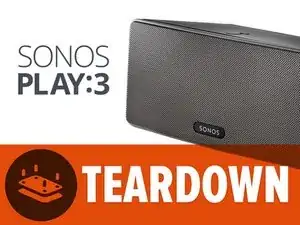
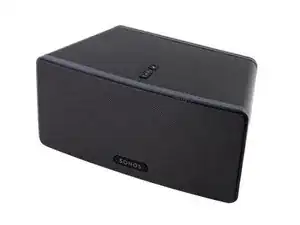

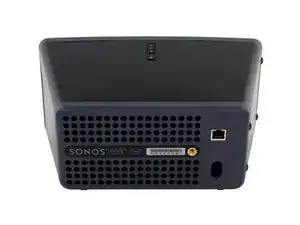
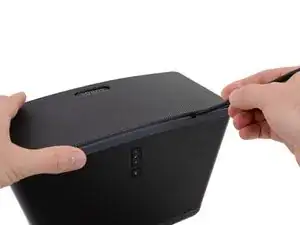
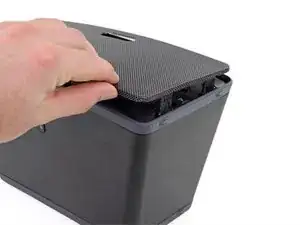
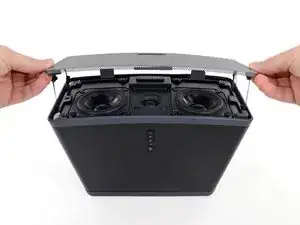

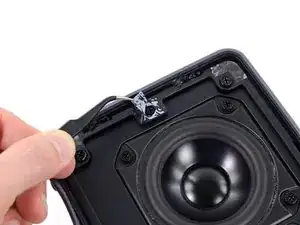
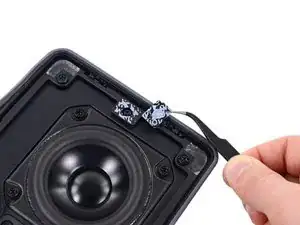
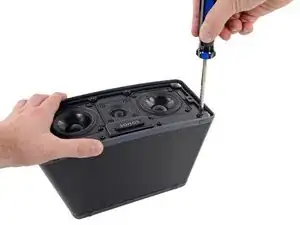
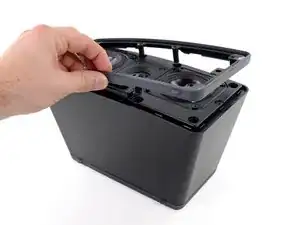
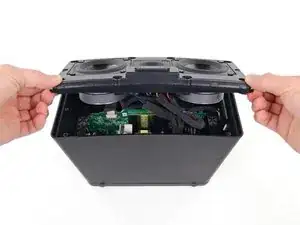
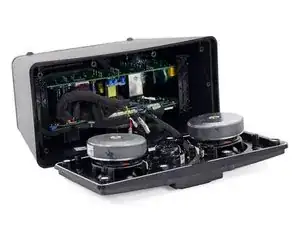
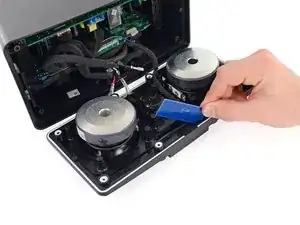
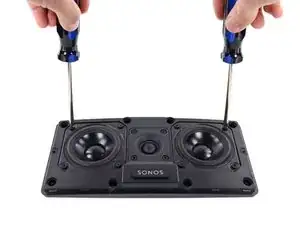
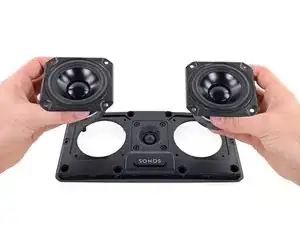
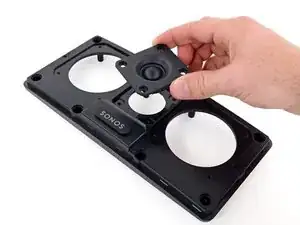
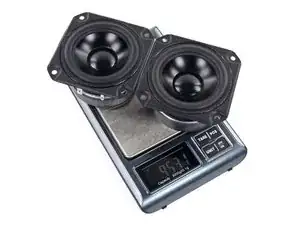
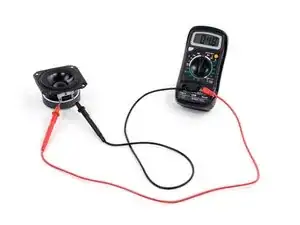
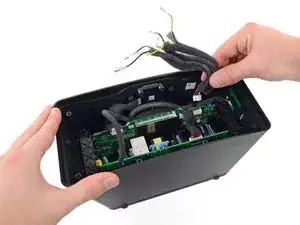
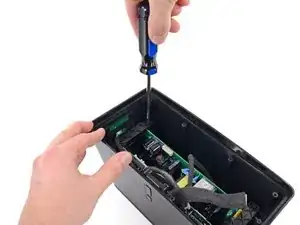
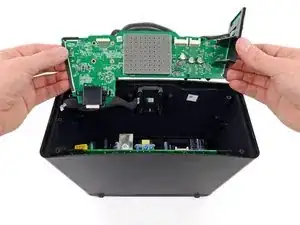
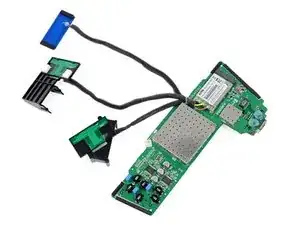
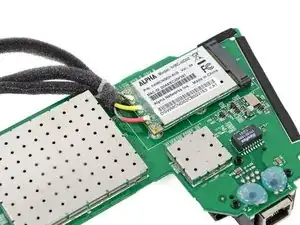
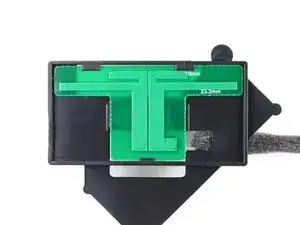
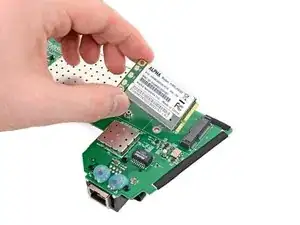
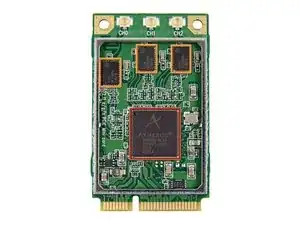
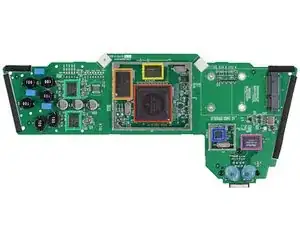
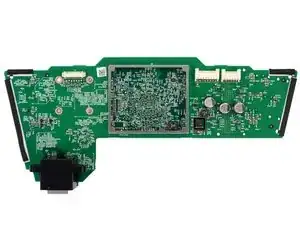
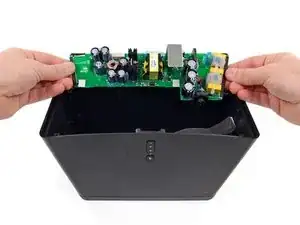
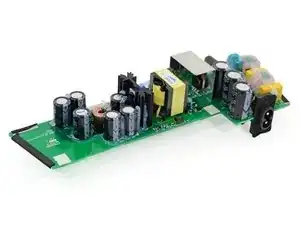
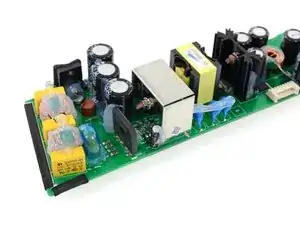
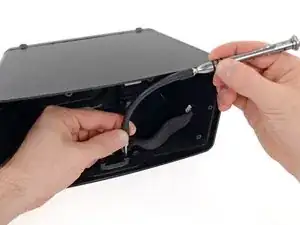
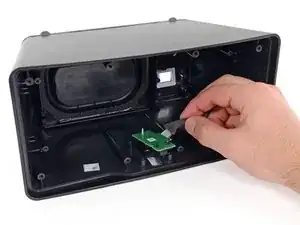
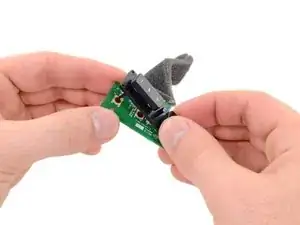
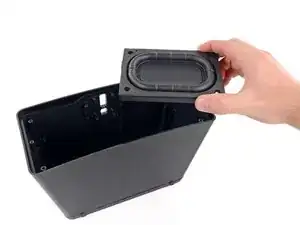
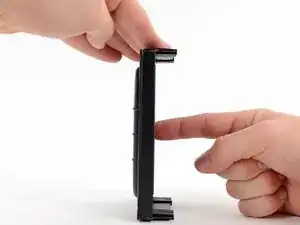
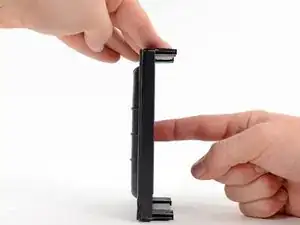

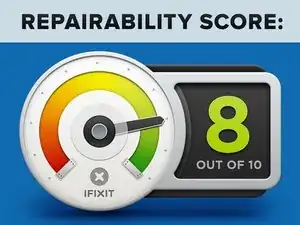

This is of course not correct, it is fully wireless.
Thorium Prime -